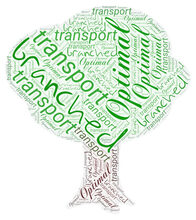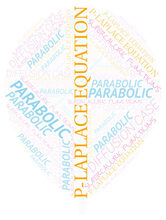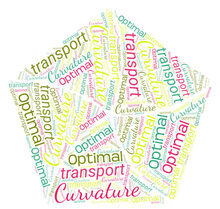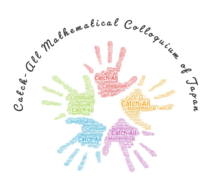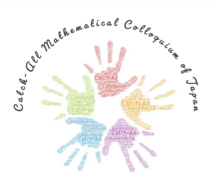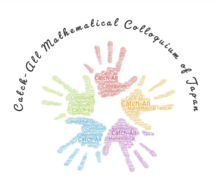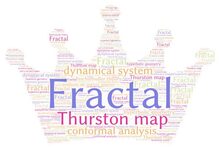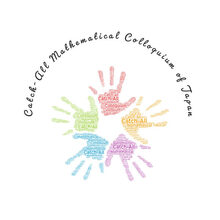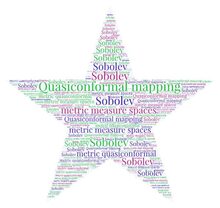Past Events
[Mini-course] A brief introduction to branched optimal transport | Professor Jun Kitagawa, Michigan State University
2022-03-10 to 2022-03-14Speaker: Professor Jun Kitagawa, Michigan State University
Title: A brief introduction to branched optimal transport
Abstract:
The optimal transport (also known as Monge-Kantorovich) problem is a classical optimization problem which has recently become the focus of much research with connections to various fields such as PDEs, geometry, and applications. In particular, it provides an effective way to metrize the space of probability measures on a given metric space. However, there is an alternate approach to metrizing such spaces using so called branched optimal transport. Branched optimal transport is based on the classical Gilbert-Steiner problem, later adapted by Qinglan Xia, and in contrast to the Monge-Kantorovich approach tends to yield branching structures. In this series of lectures I will introduce the basics of branched optimal transport and discuss some of the known results in the literature.
[Seminar] Supercaloric functions for the parabolic p-Laplace equation in the fast diffusion case, Juha Kinnunen, Aalto University
2022-03-08This talk discusses a generalized class of supersolutions, so-called \(p\)-supercaloric functions, to the parabolic \(p\)-Laplace equation. This class of functions is defined as lower semicontinuous functions that are finite in a dense set and satisfy the parabolic comparison principle. Their properties are relatively well understood in the slow diffusion case \(p>2\), but little is known in the fast diffusion case \(1
[Mini-course] Curvature and Optimal transport | Professor Asuka Takatsu, Tokyo Metropolitan University
2022-03-08 to 2022-03-10Speaker: Professor Asuka Takatsu, Tokyo Metropolitan University
Title: Curvature and Optimal transport
Abstract
In this series of lectures, I first review the notion of curvature (Gaussian curvature and Ricci curvature).
In particular, I recall some comparison theorems (Toponogov's triangle comparison theorem, Bishop--Gromov volume comparison theorem etc).
Then I introduce a generalized notion of curvature in non-smooth spaces.
[Catch-All Math Colloquium] Monge-Ampère equations related to optimal transport and geometric optics, Jun Kitagawa, Michigan State University
2022-02-22Monge-Ampère type equations are fully nonlinear elliptic partial differential equations that arise when considering the deformation of volume induced by some kind of transformation. In this talk I will discuss two such cases, the optimal transport problem, and geometric optics problems. The former discusses the most efficient way of transporting some resource to another location, and the second is a simplified model for optical instruments (such as lenses or mirrors) in which light is treated as a particle rather than a wave. I will attempt to focus more on heuristics rather than technical details; no knowledge of PDEs is assumed. A portion of this talk is based on joint work with N. Guillen.
Please register before February 17, 5 pm. Click here to register!
The colloquium will be held once a month online. Each event consists of a one-hour talk on mathematics followed by a one-hour diversity panel discussion session. February speaker is Jun Kitagawa from Michigan State University.
In the mathematics part, we will hear an exciting overview talk for a general audience. In the discussion session, we will hear about the speaker's experience as a mathematician. You can take inspiration from them and exchange ideas with other participants in a small group. After the sessions are over, there will be a tea time where participants can chat freely.
Catch-All Mathematical Colloquium
2022-01-19The colloquium will be held once a month. It will be held online for the time being. Each event consists of a one-hour talk on mathematics followed by a one-hour diversity panel discussion session. Please register before January 14, 5 pm. Click here to register!
In the mathematics part, we will hear an exciting overview talk for a general audience. January speaker is Ade Irma Suriajaya from Kyushu University. In the discussion session, we will hear about the speaker's experience as a mathematician. You can take inspiration from them and exchange ideas with other participants in a small group. After the sessions are over, there will be a tea time where participants can chat freely.
Part I Expository math talk 3-4 pm
Speaker: Ade Irma Suriajaya Kyushu University
Talk Title : Goldbach’s Conjecture and the Riemann Hypothesis in Number Theory, and Their Relations to Zeta Functions
Abstract: Number Theory has a very long history that dates back to thousands of years ago. The main goal of this study is to understand properties of numbers which can essentially be reduced to understanding prime numbers. Number Theory has evolved over time and yet we are still left with several important old problems. Among, Goldbach’s conjecture which is celebrating its 280th anniversary this year (by the time of my talk in 2022) and the Riemann hypothesis which is now over 160 years old remain unsolved. In this talk, I would like to explain what these problems are about and briefly introduce a few recent works which are related to them, especially how the distribution of zeros of the Riemann zeta function comes into play. My talk will be given in the perspective of Analytic Number Theory.
Abstract: Part II Diversity Panel Discussion 4-5 pm
Analysis on Metric Spaces Seminar
2021-12-10Catch-All Mathematical Colloquium
2021-11-24This colloquium will be held once a month. It will be held online for the time being. Each event consists of a one-hour talk on mathematics followed by a one-hour diversity panel discussion session.
In the mathematics part, we will hear an exciting overview talk for a general audience. November speaker is Masato Mimura from Tohoku University. In the discussion session, we will hear about the speaker's experience as a mathematician, especially in choosing fields of research. You can take inspiration from them and exchange ideas with other participants in a small group. After the sessions are over, there will be a tea time where participants can chat freely.
You can join Part I only or both parts of the colloquium. Please register before November 19, 5 pm. Click here to register!
Part I Expository math talk 3-4 pm
Speaker: Masato Mimura 見村万佐人 (Tohoku University 東北大学)
Talk Title : The Green--Tao theorem for number fields
Abstract: The celebrated Green--Tao theorem states that an upper dense subset of the set of rational primes contains arbitrarily long arithmetic progressions. Later, Tao proved that an upper dense subset of the set of Gaussian primes, namely, prime elements in the integer ring $\mathbb{Z}[\sqrt{-1}]$ of the number field $\mathbb{Q}(\sqrt{-1})$ contains arbitrarily shaped constellations. (We will explain the precise statement in the talk.) In the paper, Tao asked whether the same conclusion holds in the setting of arbitrary number fields. In this joint work with Wataru Kai (Tohoku U.), Akihiro Munemasa (Tohoku U.), Shin-ichiro Seki (Aoyama Gakuin U.) and Kiyoto Yoshino (Tohoku U.), we answer Tao's question in the affirmative. We have an application to the setting of a binary quadratic form. More precisely, given a form $F$, we study combinatorics on the set of pair of integers $(x,y)$ for which $F(x,y)$ is a rational prime. No serious background of number theory is required for this talk.
Part II Diversity Panel Discussion 4-5 pm
Fractals and the dynamics of Thurston maps
2021-11-19Speaker: Professor Mario Bonk, UCLA
Title: Fractals and the dynamics of Thurston maps
Abstract:
Catch-All Mathematical Colloquium
2021-10-21The colloquium will be held once a month. It will be held online for the time being. Each event consists of a one-hour talk on mathematics followed by a one-hour diversity panel discussion session.
In the mathematics part, we will hear an exciting overview talk for a general audience. October speaker is Megumi Harada, Professor of McMaster University. In the discussion session, we will hear about the speaker's personal journey as a mathematician. You can take inspiration from them and exchange ideas with other participants in a small group. After the sessions are over, there will be a tea time where participants can chat freely.
You can join Part I only or both parts of the colloquium. Please register before Oct 18th, 5 pm. Click here to register!
Quasiconformal and Sobolev mappings in metric measure spaces
2021-10-14Analysis on Metric Spaces Fall Seminar
Title: Quasiconformal and Sobolev mappings in metric measure spaces
Speaker: Panu Lahti, Chinese Academy of Sciences
Abstract: Starting from Gehring, the equivalence between the metric, geometric, and analytic def- initions of quasiconformality has been investigated by various authors. There are many results stating that if a mapping is metrically quasiconformal, perhaps only in a relaxed sense, then it is analytically quasiconformal, or at least a Sobolev mapping. In recent joint work with Xiaodan Zhou, we have shown an improved version of such a result, which seems to detect more Sobolev mappings than previous results in the literature. I will discuss these results as well as the general strategy of the proofs.




